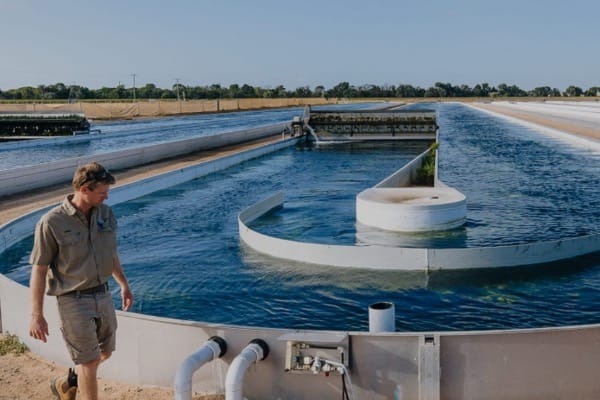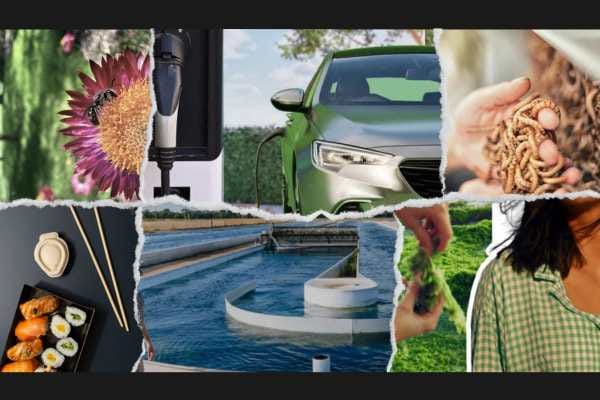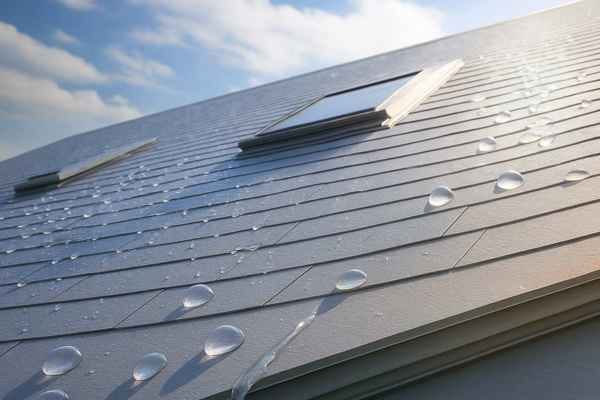Algae's new role in wastewater
A North Queensland council has boldly traded chemical wastewater treatment for a native macroalgae-based system.

Queensland officials have cut the ribbon on a new type of wastewater treatment facility that uses native macroalgae and sunlight to naturally clean sewage.
The facility – which sits amidst cane fields in Burdekin Shire southeast of Townsville – was cheaper to build and uses far less energy than a conventional facility its developers say.
Burdekin Shire Council and Queensland biotech firm Pacific Bio collaborated on the facility, which they say is the first in the world to use native macroalgae to clean wastewater in a full-scale operation.
The water is purified by the plants, with nutrients like nitrogen and phosphorus removed. The treated water is disinfected using UV light before being returned safely to the environment and the nutrient-rich algae is then harvested and repurposed as fertiliser for local farms.
“We definitely are punching above our weight with this project, the first of its kind of this size in the world,” James Stewart from Burdekin Shire Council told ABC News.
“The proof's in the pudding. I mean, we're the first to do it. We're hoping our neighbours will, if it's right for them, follow our lead.”
“We definitely are punching above our weight with this project, the first of its kind of this size in the world.”
A win for the reef
The Great Barrier Reef is the world’s largest coral reef system and is a crucial ecosystem for marine life. It also serves as an important carbon sink, and is now facing a growing threat from climate change and water pollution, particularly from sediment runoff.
The new algae-based system addresses this by absorbing nitrogen and phosphorus from wastewater, both of which are major contributors to poor water quality.
The facility also helps address climate goals, Pacific Bio says. As the algae grows, it absorbs carbon dioxide. Moreover, the use of the harvested algae by local farms also reduces synthetic fertiliser runoff into the ocean.
“The macroalgae is good at drawing the nutrients out of the water, so it draws out the nitrogen and the phosphorus and grows incredibly rapidly,” Pacific Bio CEO Sam Bastounas told ABC News.
The algae not only cleans water but also becomes a useful product. Once harvested, it's processed into a biostimulant product that helps boost crop strength and resilience.
“It helps them accelerate root shoot growth in plants. It enables them to use far less fertiliser and get a far healthier crop,” Bastounas said.
Pacific Bio says it hopes the cost-efficiency and environmental benefits will make its technology appealing to other regional councils in Queensland, especially those in the Great Barrier Reef catchment area.
The facility has already earned a spot in the Reef Credit Scheme registry, recognising the use of its methodology to cut nutrient pollution.
Testing the waters
Construction of the Burdekin facility began in mid-2023 and was completed late last year. It was officially opened on 20 June by Queensland Minister for Local Government and Water Ann Leahy.
The project was jointly funded by the Queensland Government and Burdekin Shire Council at a cost of around $8 million – while the cost of building a typical water treatment plant is estimated at around $30m.
The system being used at Burdekin is called RegenAqua and was developed over a decade at James Cook University. In addition to fertiliser, Pacific Bio says it is also researching methods to convert the used algae into biofuels.
Another Pacific Bio plant is in the works in NSW following a deal signed with Sydney Water in 2022 to build a pre-facility four times the size of the Burdekin plant at Picton.
Meanwhile, similar systems are being trialed in South Australia, with Flinders University and SA Water testing algae-based wastewater systems to boost green water recycling in regional towns.
“Supported by SA Water and the ARC Biofilm Research and Innovation at Flinders, we are trialing selective enrichment of algal-bacterial combinations to produce higher quality treated effluent,” Flinders University’s College of Science and Engineering Professor Howard Fallowfield recently said.
The RegenAqua system channels wastewater through raceways filled with native freshwater macroalgae specially chosen to avoid introducing invasive species. These fast-growing algae absorb nitrogen, phosphorus, and other nutrients, helping to reduce pollution. As they grow, the algae also capture carbon dioxide from the atmosphere. Once mature, the algae are harvested, and the treated water is exposed to UV light to destroy pathogens like E. coli. This cleaner water is then ready to return to natural ecosystems. The harvested algae are turned into commercial biostimulant products, rich in hormones, amino acids, minerals, and other valuable compounds for use on agricultural crops.





